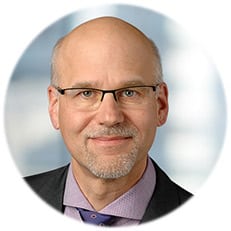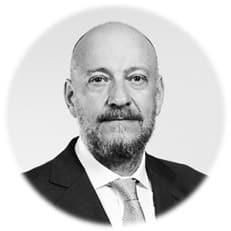Translated from an interview originally authored in French by Yves Hulmann and published in Allnews on Oct 6th 2020. Original version: https://www.allnews.ch/content/interviews/investissement-responsable-la-sinc%C3%A9rit%C3%A9-de-l%E2%80%99engagement-fera-la-diff%C3%A9rence
For Jean-François Hirschel of H-Ideas, the audience will be able to differentiate between players who are sincerely committed to SRI, and those who act only out of opportunity.
Sustainable or responsible investment has become a major investment topic in recent years. How can asset managers adapt their business model to take these aspects into account? A discussion with Jean-François Hirschel, founder and CEO of H-Ideas, a Geneva-based consultancy firm that aims to restore trust in the financial sector. It helps financial companies to redefine their strategic positioning at the brand and product level, including aspects related to socially responsible investment (SRI) and sustainability.
H-Ideas stresses the need to restore trust in the financial sector. If you were to compare two recent major crises, the global financial crisis of 2008-09 and the Covid-19 crisis, do you think that progress has been made in the last ten years in the industry?
The financial crisis of 2008 and 2009 was a relatively classic crisis, resulting from exaggerations in previous years. The rubber band had been pulled too hard and eventually broke. This crisis highlighted a period of excess, where the financial sector had been hungry for profits. It had a big impact in terms of reputation – all of a sudden, everything had become the fault of finance.
In comparison, the Covid-19 crisis – the evolution of which is still largely uncertain – is very different. This time, the culprit is not finance – it could even be the solution to some of the problems. The recent crisis has also highlighted the fact that certain parameters, a priori non-financial, can then have a very concrete financial impact on the valuation of companies. This has been the case, for example, with oil companies, whose prices collapsed as a result of containment. Suddenly, it was realised that the failure to take into account certain extra-financial factors – whether environmental or social – could have very real financial consequences. This awareness is essential: we don’t know where and when the impacts of climate change will occur, but we do know that they will materialise.
There is such a demand from investors for sustainability that managers cannot remain on the side-lines.
Which structures are best placed to integrate the SRI dimension: sustainability specialists, such as boutiques specialising in impact finance for example, or generalists, such as large banks or managers of broadly diversified assets?
Large structures of course have the advantage of their size and strength. They can put together a team dedicated to responsible investment fairly quickly. The next question that arises in large structures is whether the principles of responsible investment apply to everything they do, or only to part of their activities. One of the keys to a successful transformation process is to convince investment managers that taking sustainability into account is also a source of performance – and not just a constraint.
As far as the specialised boutiques are concerned, we can see that they often show great sincerity in their activity, that they really believe in SRI. And this even if, paradoxically, they sometimes find it more difficult to obtain certain certification labels, given their more limited means.
In the end, I think it is the sincerity of the commitment that will make the difference. The public can distinguish between those who have a sincere commitment to responsible investment and those who act primarily for the sake of opportunity.
In an article published this spring, you argue that the “S”, the social aspects within the ESG criteria, is now more essential than ever. It is a view that goes somewhat against the emphasis that has been placed in recent years mainly on the “E”, i.e. environmental aspects. Why has the “S” become so important today? I wouldn’t necessarily say that the “S” takes precedence over the “E” or the “G”. However, I think less attention has been paid to social criteria than to environmental or governance aspects. But the recent crisis has shown that it is important to pay more attention to aspects such as the health and safety of employees in companies and also when selecting suppliers. If these aspects are neglected, this can ultimately be very detrimental to companies.
There is no predefined process. Each company is unique, much like individuals.
Among the financial companies you advise, have the recent health crisis and climate change debates pushed those who were hesitant until recently to adapt their way of working and take more account of SRI criteria?
Yes, certainly. There is now such a demand from investors for sustainability that managers cannot stay away from this issue. The question is often more one of how deeply they are going to get involved in this area. Moreover, for many managers, commitment to responsible investment is also a more telling differentiating factor than the usual marketing slogans such as “we have outperformed the markets” or “we can rely on an experienced team”. This is all the more important in a highly competitive environment where there are more than 4,400 asset managers in Europe.
If an investment company that is lagging in SRI comes to you for advice, what recommendations do you make to them? Do you follow predefined processes?
No, there is no predefined process. Each company is unique, much like individuals. It is this uniqueness that makes them different and allows them to stand out: our role and the methods we have developed allow us to pinpoint this identity and express it in a way that connects with the needs and aspirations of investors. I often observe that established financial companies are keen to take action on SRI, but they are not sure how to implement it, or have not mastered the language of SRI.
Do you have examples of companies that have completely changed course after consulting you?
Often, the willingness to move in the direction of better integration of SRI aspects already existed – but was not clearly articulated. For example, I worked with a management company that had long been taking environmental or social aspects into account in the selection of its securities, but without having clearly expressed this, or defineddistinct processes.
“Mr Jourdain” of responsible investment in a way?
Yes, and there are many of them! Our role is to help such companies to clarify their way of working and to make it more efficient for them to express their convictions in this area to their clients.






